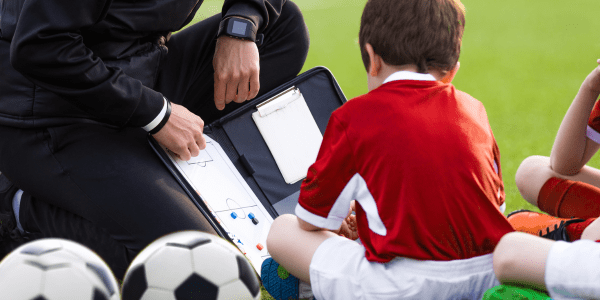How to Deal With Distractions
Sports kids struggle with a number of distractions. They include:
- Noisy spectators
- Nagging injuries
- Opponents who lob criticism at opposing team members
- Poor playing conditions
- Negative media attention
These examples are external distractions. While external distractions are bothersome, they are not the most formidable challenge for athletes.
Internal distractions are much more destructive and difficult to manage, particularly the “what if” trap.
‘What ifs’ are negative hypothetical situations that preoccupy athletes’ minds before, during and after a competition, including:
- What if I fail?
- What if I let down my coach, teammates or family?
- What if I get injured again?
- What if I make a few mistakes and get benched?
- What if I miss the shot that would tie the game?
- What if I fall during my routine?
- What if I choke in the final minutes of the competition?
The problem: “What ifs” or hypothetical scenarios are future-based. What ifs are fears and worries about potential outcomes.
However, the present moment is free from fear. The present moment establishes what needs to be done “now” and the best way to accomplish those tasks.
Focusing on the present is the optimal mindset that fosters success and peak performance.
Young athletes can attain a present-moment focus by switching out “what if” thoughts with “what now” thoughts. “What now” thoughts provide clear instructions or directions for achieving kids’ objectives.
Not Getting Distracted
For example, a baseball relief pitcher who is trying to close a game with a one-run lead and the bases loaded might experience many internal distractions such as, “What if I blow the save?” “What if I am demoted because I can’t throw strikes?” or “What if I let my team down again?”
Each of the previous thoughts is destructive and counterproductive. Kids can switch their thought process to instructive thoughts by asking, “What now?”
This question helps clarify kids’ focus for the present moment. For instance, “Take a deep breath. Look for the signal from the catcher,” or “Okay, fastball, low, and away. Check the runners. Throw at the target.”
Asking “what now?” helps athletes quickly process a situation, decisively choose a course of action, then follow through. This simple method keeps kids mentally engaged in the moment.
Indiana Fever center Aliyah Boston was the WNBA No. 1 overall pick in 2023. When playing, Boston has a “What Now” mentality and directs her attention only to the factors contributing to peak performance.
“Greatness is just being true to who you are but also working hard to accomplish the goals,” she said. “Every time I step on the court, I expect to be dominant. I go out there every game, and I’m just going to be who I am.”
Hypothetical thinking traps young athletes in an endless loop of negative thinking. When kids shed this over thinking, they free their minds to focus on what to do and how to do it.
Help sports kids get in the habit of asking, “What now?” When they begin to fear what might happen, they can refocus on the moment by shifting their thoughts from “what if?” to “what now?”
Sports kids should always focus on what they want to do–make the shot–instead of thinking about what not to do (don’t miss or what if I miss?).
Related Articles on Kids’ Mental Game:
- How Participating in Sports Gives Kids an Edge in Life
- Boosting Athletes’ Confidence with Life Skills Lessons
- Why it’s Important for Balance in Athletes’ Life
*Subscribe to The Sports Psychology Podcast on iTunes
*Subscribe to The Sports Psychology Podcast on Spotify
Improve Your Mental Game From Anywhere In The World

We’re certain that, as a parent, you want to help your child develop confidence and discipline in sports and life. And as a sports parent, you’d love for your children to reach their potential in sports. But encouraging your child to strive for greatness without pressuring them can be a challenge.
You can get expert mental coaching with us from anywhere. Meet with us via Zoom, Skype, FaceTime or phone call. With today’s video technology, we are able to connect with athletes and coaches all over the globe.
Call Us Today to Schedule Your Free 15-Minute Session.
Find Out How Your Athlete Can Benefit From One-on-One Mental Coaching

